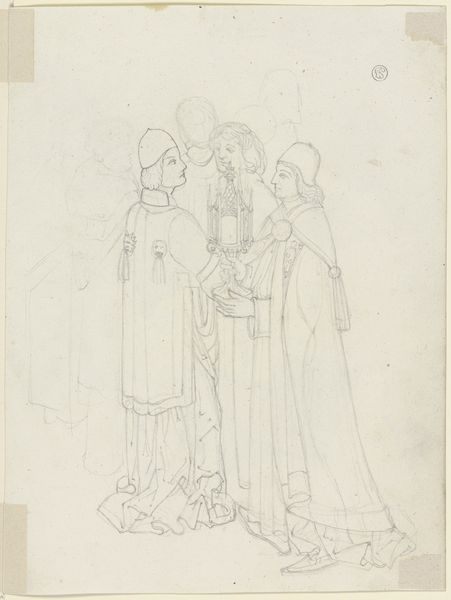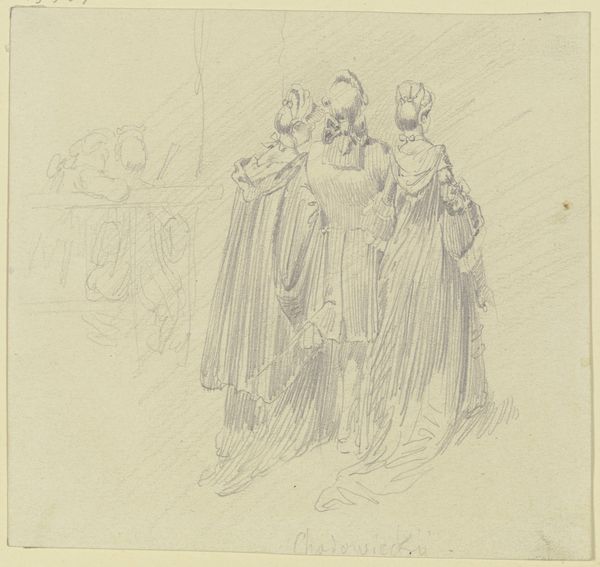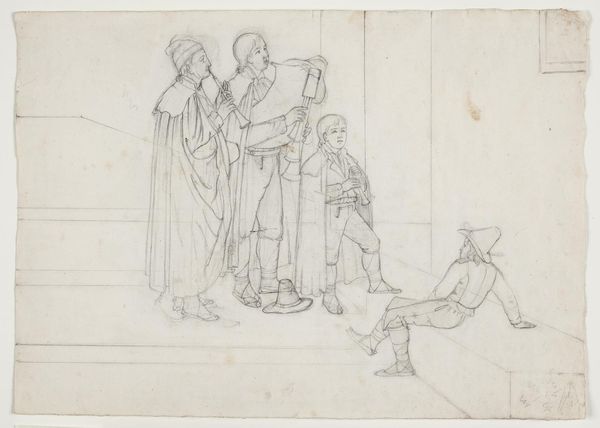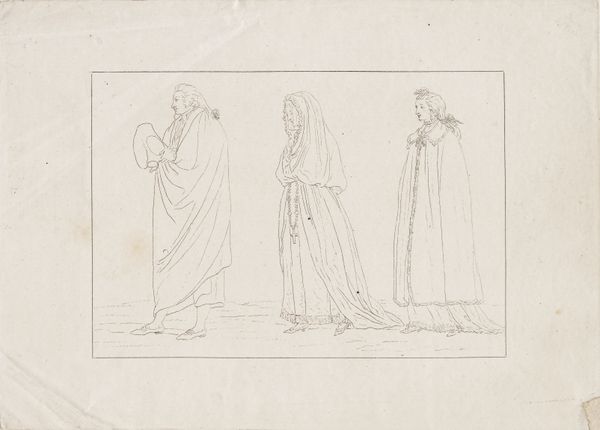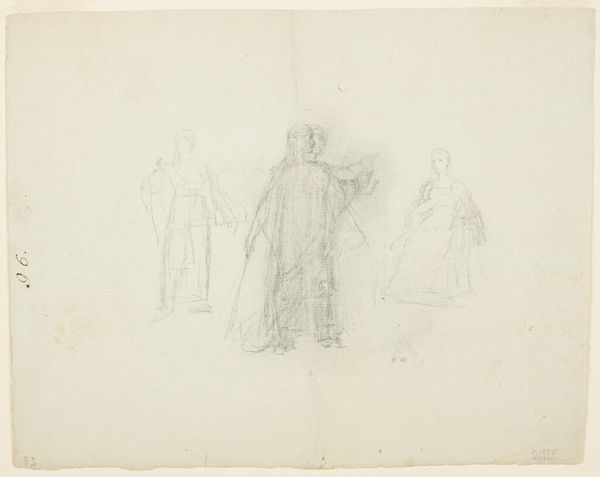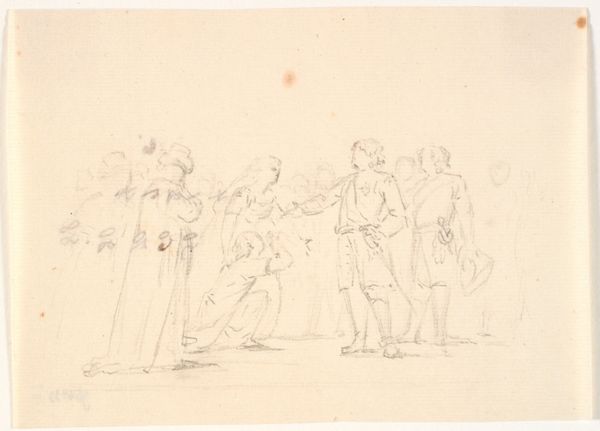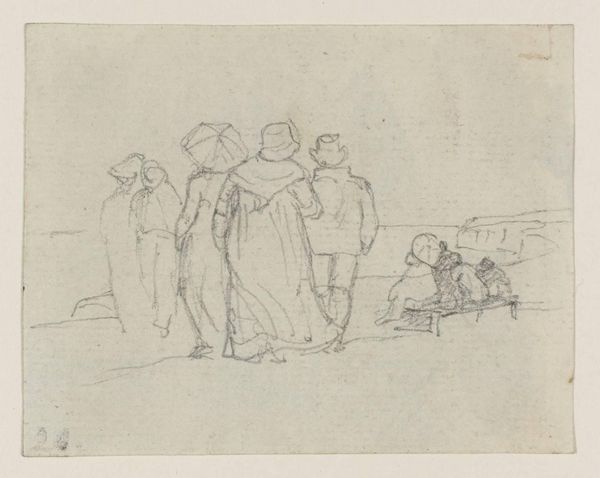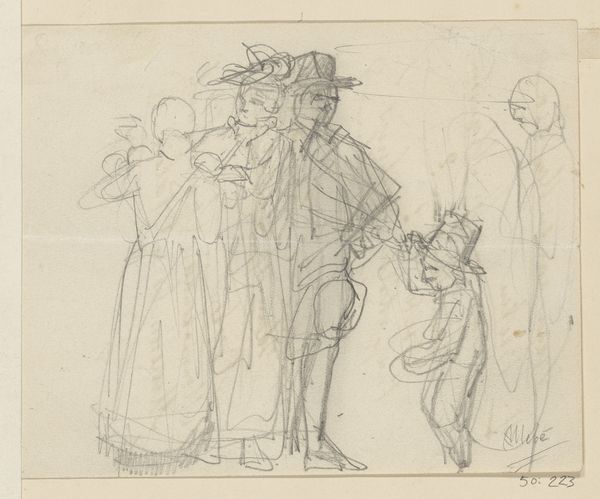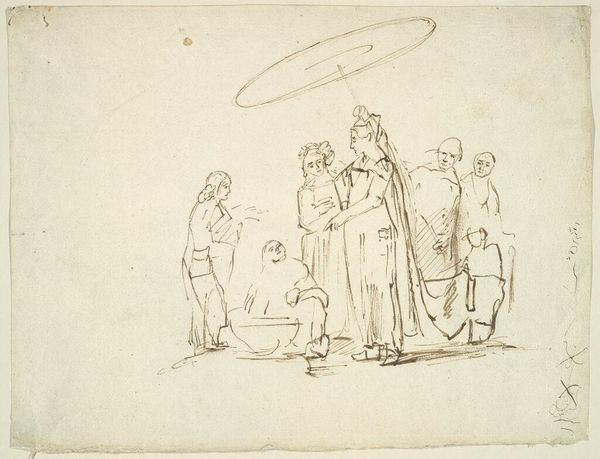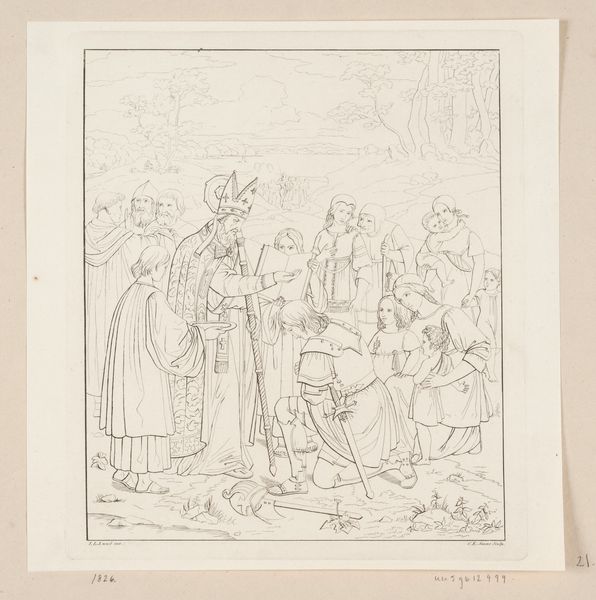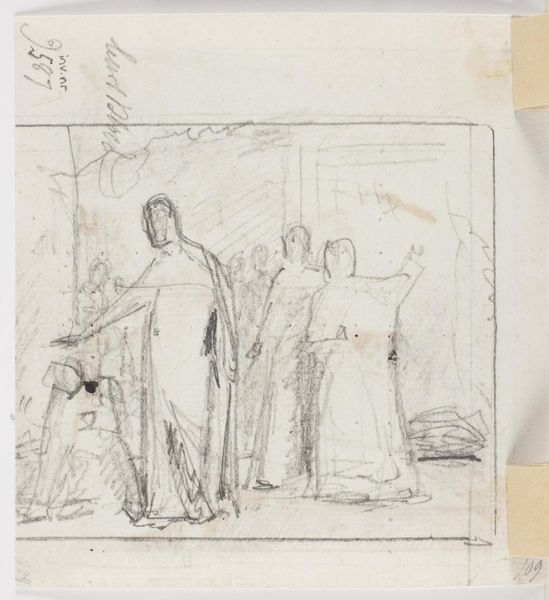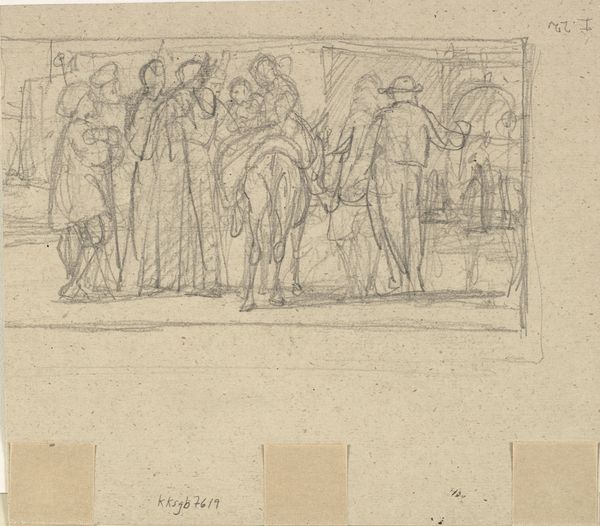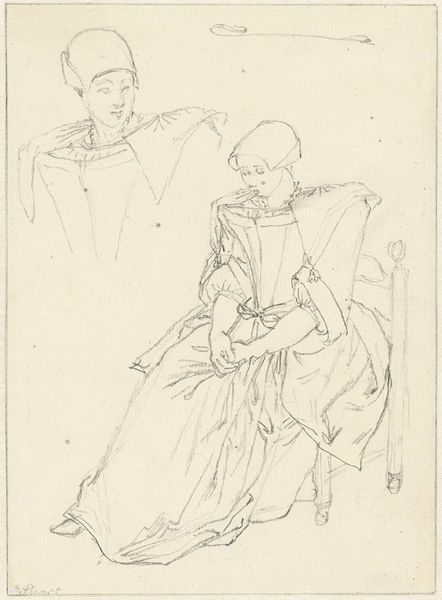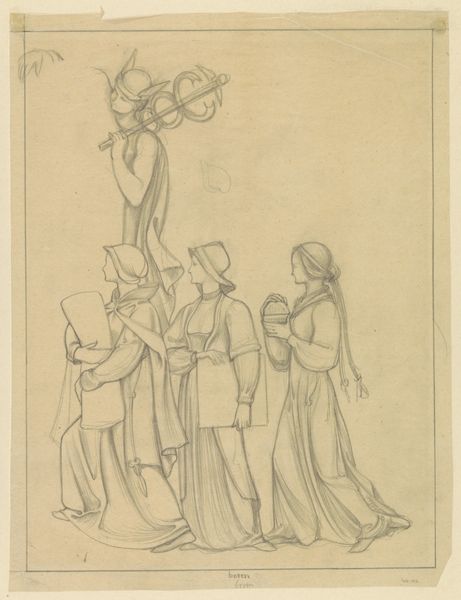
drawing, pencil
#
portrait
#
drawing
#
toned paper
#
light pencil work
#
quirky sketch
#
pencil sketch
#
sketch book
#
figuration
#
personal sketchbook
#
idea generation sketch
#
sketchwork
#
pencil
#
sketchbook drawing
#
genre-painting
#
initial sketch
Copyright: Public Domain: Artvee
David Roberts made this sketch of figures in a church with graphite on paper, most likely during the 19th century. It seems to be a preparatory study. The pencil lines, light and quick, suggest a fleeting moment captured swiftly by the artist. Roberts's process of sketching was aligned with industrial efficiency. He mass-produced prints based on his travels in Europe and the Middle East, which catered to a burgeoning middle class eager for exotic imagery. These sketches are steps on a journey to this end. The linear quality of the pencil work defines the forms. The weight of each line helps to create volume, especially noticeable in the drapery of the figures' robes. The texture of the paper adds a subtle grain, enriching the overall visual experience. In the social context of the Industrial Revolution, sketches like these became prototypes for printed reproductions, feeding into a culture of consumption. Looking at Roberts's sketch, we see the subtle but crucial labor involved in making art accessible to a wider public. Appreciating the materiality and context allows us to understand the broader impact of artworks in society.
Comments
No comments
Be the first to comment and join the conversation on the ultimate creative platform.
